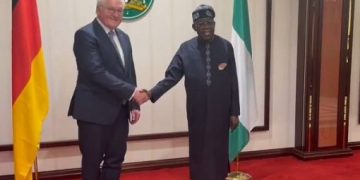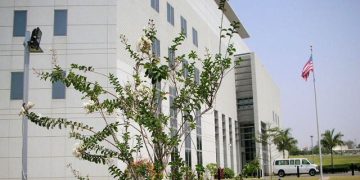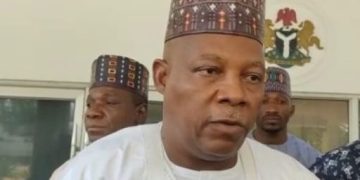The International Monetary Fund (IMF) has disclosed gave Nigeria $6. 8 billion in facilities between 2020 till date, following the outbreak of Covid-19.
The IMF Resident Representative for Nigeria, Mr. Ari Aisen, disclosed this while presenting the latest Sub-Saharan Africa Regional Economic Outlook, in Abuja on Monday.
Aisen expressed concerns that many African countries, including Nigeria, would face a critical problem with debt servicing unless actions were immediately taken to significantly raise revenue.
According to him, over 80 per cent of federal government revenue was going into debt servicing, describing it as an “existential problem.”
He said:
It is a reflection of low revenue. It is an existential issue for Nigeria. It is essential for macro-economic stability. It is important for the provision for social service.
He flayed the Nigerian economic situation in which as an oil exporter, it was not able to take advantage of the current high oil prices to build reserves but also faced low earnings due to the petroleum products subsidy.
According to him, with a monthly N500 billion petrol subsidy bill, the nation could hit a record N6 trillion subsidy, at the end of the year.
READ ALSO: What Tinubu Said During APC’s Presidential Screening – Aide
He expressed optimism that the Dangote Refinery would reduce fuel importation when completed, in order to reduce the subsidy burden.
On the economic outlook for the continent, Mr. Aisen identified key priority areas: how to reduce debt vulnerabilities; balance inflation and growth; and manage foreign exchange rate pressures.
He said that with, “unrivalled potential for renewable energy and an abundance of minerals, a successful transition offers opportunities for diversification and job creation; ensuring the green transition is also a just transition.”
The IMF rep said fragile and conflict-affected African countries were at the risk of falling further behind in terms of development, especially now that the world economy was faced with an unprecedentedly high energy and food prices.
According to him, the Fund had done a lot to help African countries, South of the Sahara, having given them the $23 billion Special Drawing Rights allocation and planning to re-channel additional $100 billion SDR from developed countries.
The Rep said that Africa needed $425 billion to recover from the COVID-19 pandemic, in addition to $30–50 billion per year for climate adaptation and $ 6-10 billion annually for commodity import.
In his remarks, the Director-General of the Budget Office, Mr. Ben Akabueze, disagreed with Mr. Aisen on his debt service/revenue figures.
According to the DG, debt service/revenue was 76 per cent , but admitted that even at that level, it was way far too high.
















